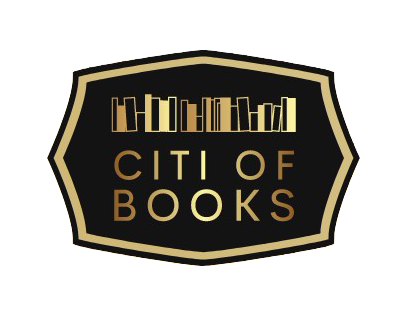
As the pages of history turn, we find ourselves reflecting on a remarkable milestone—the 30th Los Angeles Times Festival of Books, the largest book festival in the United States, held on April 26-27, 2025. Set against the stunning backdrop of the University of Southern California campus, this annual celebration of literature brought together thousands of book lovers, authors, and industry professionals for a weekend brimming with literary magic.
Attracting around 150,000 attendees from Southern California and beyond, the festival was a testament to the enduring appeal of literature and the community it fosters. Each event, each conversation, and each shared moment contributed to a rich tapestry of experiences that celebrated the diverse voices and stories that shape our world.
This year, Citi of Books was thrilled to be part of this vibrant gathering, where the love for literature was palpable in the air. Whether you were a lifelong bibliophile or a curious newcomer exploring the world of books, the festival provided a unique opportunity to connect with fellow enthusiasts and share our passion for the written word.
As we look back on this unforgettable weekend, we invite you to join us in reliving the highlights of Citi of Books’ gallery during the 30th Los Angeles Times Festival of Books—a true celebration of the literary arts! A book included in the gallery was “From Berkeley to Berlin: How the Rad Lab Helped Avert Nuclear War” by Tom Francis Ramos
For the past forty years, Tom Ramos has been a physicist at the Lawrence Livermore National Laboratory, where he was a member of the nuclear team that developed the X-ray Laser for President Reagan’s Strategic Defense Initiative. He later supported US/USSR arms control negotiations. Ramos, who graduated from West Point, commanded combat engineers before entering MIT to earn a degree in high energy physics.
“From Berkeley to Berlin: How the Rad Lab Helped Avert Nuclear War” is a compelling exploration of the pivotal role played by the Radiation Laboratory (Rad Lab) at the University of California, Berkeley, during a critical period in the Cold War.
The narrative begins in November 1960, when John F. Kennedy was elected president amid rising tensions with the Soviet Union, particularly concerning the fate of West Berlin. Soviet Premier Nikita Khrushchev’s aggressive nuclear diplomacy posed a significant threat, setting the stage for a potential nuclear confrontation. At the heart of this story is Ernest Lawrence, a South Dakotan and grandson of Norwegian immigrants, who founded the Rad Lab, attracting some of the brightest minds in nuclear physics, including J. Robert Oppenheimer.
As the story unfolds, Ramos highlights the challenges faced by Lawrence and his team, particularly when the Soviet Union emerged as a nuclear power under Joseph Stalin. The Rad Lab physicists were tasked with developing a nuclear deterrent to counter the Communist threat, a mission fraught with difficulties and setbacks.
Despite facing ridicule and calls for their laboratory’s closure after three failed attempts, the team persevered, ultimately contributing to the development of the Polaris missile—a submarine-launched ballistic missile that became a cornerstone of the United States’ nuclear deterrent strategy. Their determination and innovation were crucial in establishing a credible defense against Soviet aggression.
The book culminates in a poignant moment six months after the crisis, when Kennedy visits Berkeley to express his gratitude to the Rad Lab physicists for their contributions in averting nuclear war. Ramos’s work not only chronicles a significant chapter in American history but also underscores the importance of scientific innovation and collaboration in the face of geopolitical challenges. Ultimately, “From Berkeley to Berlin” serves as a reminder of the critical role that individuals and institutions can play in shaping the course of history, particularly during times of crisis.
Contact Citi of Books at +1 877-389-2759 or send a message at the following links:
- info@citiofbooks.com
- https://citiofbooks.com/
- https://www.facebook.com/COBNMUSA/
- https://www.instagram.com/citiofbooks/
- https://www.threads.net/@citiofbooks?hl=en
- https://x.com/CITIOFBOOKSINC
- https://www.tiktok.com/@citiofbooksinc
- https://www.youtube.com/@citiofbooks
- https://www.pinterest.com/CitiofBooksinc/
- https://bsky.app/feeds

